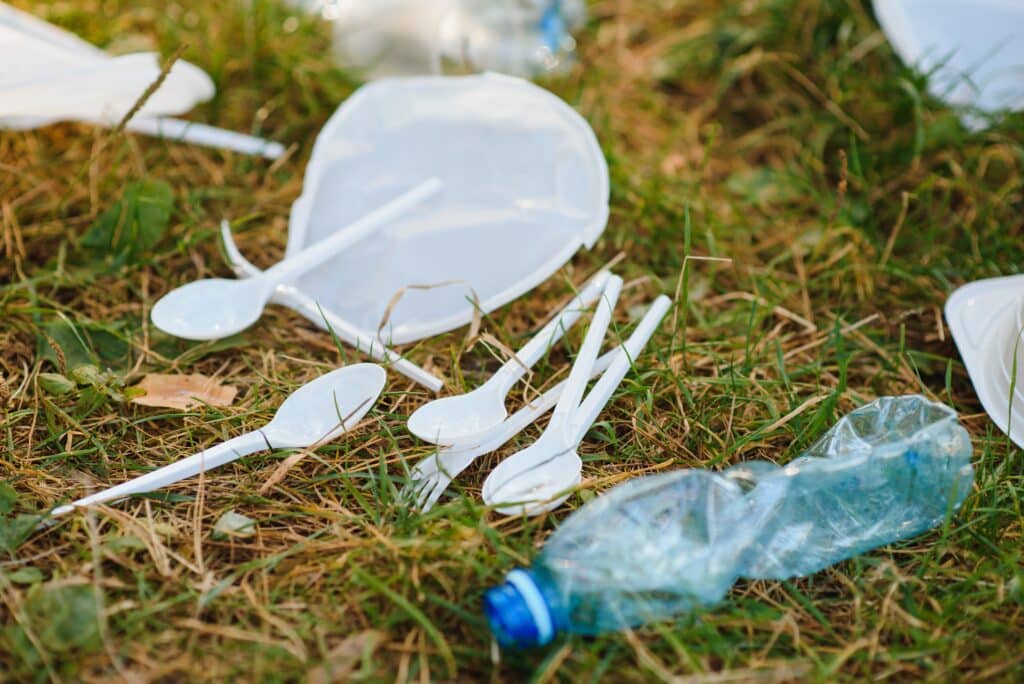In the European battle against plastic pollution, an important step was taken in 2019 with the publication of a directive prohibiting the production and sale of single-use plastics. However, shortly thereafter, a concerning issue arose regarding products marketed as “washable” alternatives. Are these products genuinely environmentally friendly, or are they just a marketing trick?

Combatting Single-Use Plastics
Single-use plastics, such as straws, plastic utensils, and packaging, have long been considered major contributors to plastic pollution. The European Union (EU) decided to take significant steps to address this issue. In June 2019, it adopted a Directive (EU 2019/904), which restricts several types of single-use plastic products. These include cotton swabs, utensils, plates, straws and more. The directive aims to reduce the environmental impact of these products and encourage the use of alternatives.
The Rise of “Washable” Products
In response to EU legislation, companies introduced products marketed as environmentally friendly replacements for single-use plastics. One significant claim about these products is that they are “washable,” implying that you can reuse them, thus reduce the consumption of single-use items. Examples include “washable” food storage bags, sandwich wraps, and disposable cutlery. However, the truth is that such products hardly differ from their single-use counterparts in practice.

Deceptive Reality
Behind the appealing idea of washable alternatives to single-use plastics lies a disturbing truth. Companies labeling their products as washable may not be entirely truthful in their claims. Here are some issues consumers need to be aware of:
Single-use Items Are Rarely Washed
The fundamental flaw in the “washability” claim is that no one actually washes single-use products such as straws, utensils, or food wrappers. This means these so-called washable products fail to fulfill their purpose and often end up in the trash after just one use, similar to single-use items. Real change was the intention behind the creation of the Directive, but does it make sense when big companies are more interested in profit than saving our planet?
Impact on Smaller Sustainable Businesses
Deceptive marketing practices by larger companies promoting “washable” products pose a significant threat to smaller, genuinely sustainable businesses such as REFORK, with commitment to real environmental conservation. These smaller companies create products with genuine eco-friendly credentials but struggle to compete with deceptive marketing strategies and prices promoted by larger corporations.
Environmental Concerns
While washable products may seem like a sustainable choice, the materials used can still negatively impact our planet due to the formation of microplastics during their decomposition. This calls into question the overall sustainability claim of such products.
Washing Requirements
Some washable products may require specific washing conditions, such as very low temperatures or air drying, to maintain functionality. If not properly cared for, they can quickly wear out, leading to frequent replacements that further negate their eco-friendliness.
Release of Microplastics
During washing, some washable products may release microplastics, contributing to the growing problem of pollution.
Read more about the harmful effects of microplastics in the article below:
Microplastics in focus
Disposal Challenges
At the end of their lifecycle, washable products may pose a disposal challenge as they may no longer be recyclable or biodegradable.

Conclusion
While the directive against single-use plastics is a commendable step towards mitigating plastic pollution, consumers must remain alert against deceptive marketing practices regarding “washable” products. The truth is that few people wash and reuse disposable items like straws or cutlery. Such claims also jeopardize smaller companies genuinely fighting for sustainability.
To make informed and sustainable choices, consumers should seek products that transparently disclose their environmental impact. Such products should have a durable design, and are made from biodegradable materials. Additionally, consumers can play a crucial role in supporting smaller, sustainable businesses and holding larger corporations accountable. Through informed choices and the advocacy of genuine sustainability, we can collectively contribute a more responsible future for all.